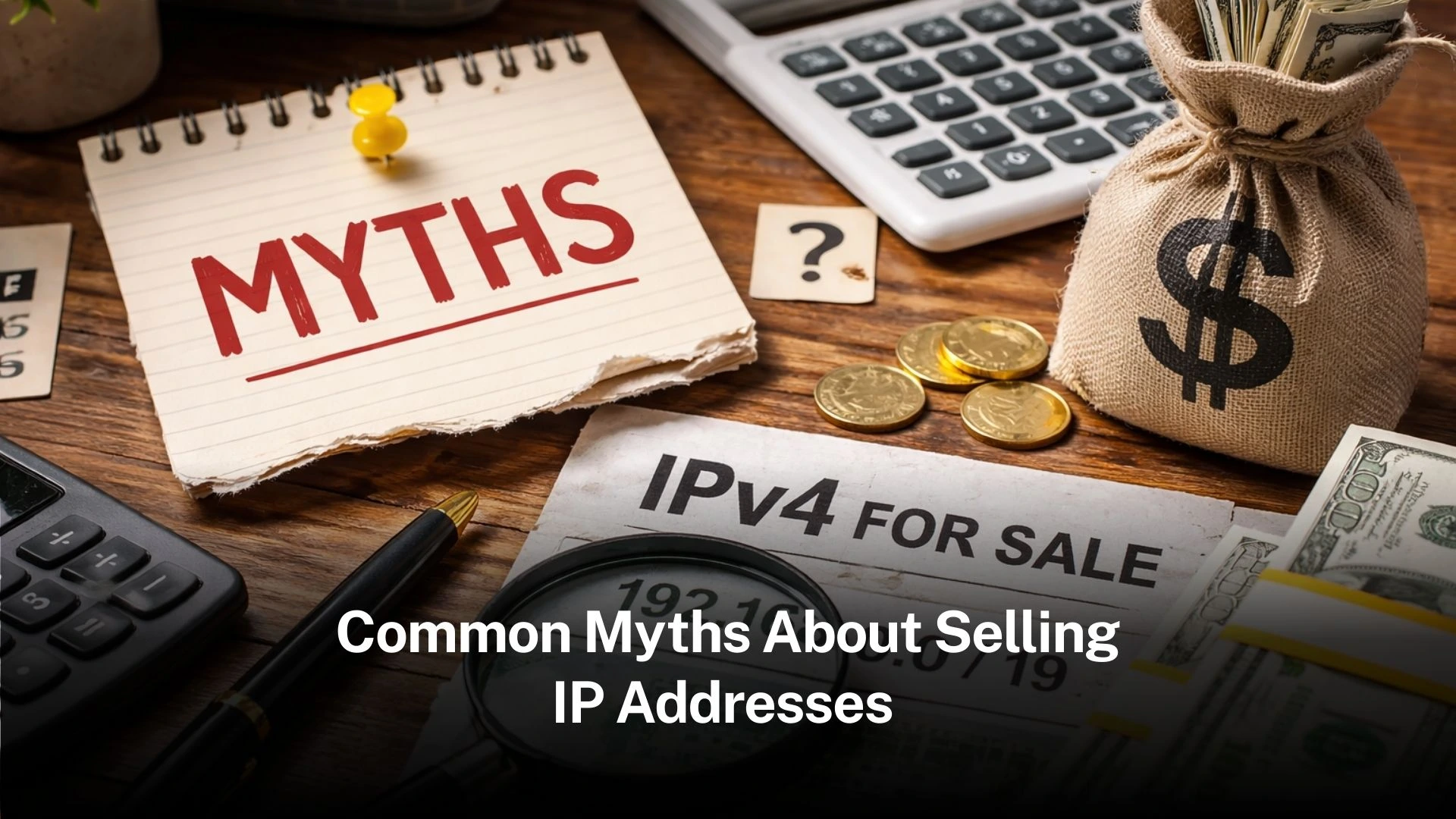IP Address Geolocation: Understanding its Uses and Implications

In today’s interconnected world wide web, the ability to determine the geographical location of an IP address has become increasingly important for various applications, ranging from targeted advertising to fraud detection and cybersecurity.
Table of Contents
In this article, we will explore IP address geolocation, shedding light on its uses, technologies, and potential implications.
What is IP address geolocation?
IP address geolocation refers to the process of mapping an IP address to a physical location on the Earth’s surface, such as a country, city, or even a specific street address. This geolocation data provides valuable insights into the geographical distribution of internet users, allowing organizations to tailor their services, content, and marketing strategies based on users’ locations.
Technologies Behind IP Address Geolocation

There are three technologies and techniques used to determine the geolocation of an IP address, including:
Geolocation Databases
Geolocation databases contain vast repositories of IP address ranges mapped to corresponding geographical locations. These databases are continuously updated and refined using various data sources, such as internet registries, user input, and crowd-sourced feedback.
IP Geolocation APIs
IP geolocation APIs provide developers with programmable interfaces to query geolocation data for a given IP address in real-time. These APIs offer accuracy, speed, and flexibility, enabling applications to dynamically retrieve geolocation information as needed.
GeoIP Services
GeoIP services offer comprehensive solutions for IP address geolocation, combining database lookup, real-time querying, and advanced analytics to deliver accurate and actionable geolocation insights. These services are widely used across industries for diverse applications, including e-commerce, digital marketing, fraud prevention, and content localization.
Uses of IP Address Geolocation

IP address geolocation has numerous practical applications across various industries and domains, including:
Targeted Advertising
By leveraging geolocation data, advertisers can deliver personalized ads and promotions based on users’ geographic locations, preferences, and interests. This targeted approach enhances ad relevance, engagement, and conversion rates, maximizing the effectiveness of digital advertising campaigns.
Content Localization
Content providers can use geolocation data to deliver localized content, services, and user experiences tailored to users’ linguistic, cultural, and regional preferences. This localization strategy enhances user engagement, satisfaction, and retention, particularly in multi-national or multi-lingual markets.
Fraud Detection and Prevention
Geolocation data is instrumental in detecting and preventing fraudulent activities, such as account hijacking, identity theft, and online scams. By analyzing anomalies in users’ geolocation patterns, organizations can identify suspicious behavior, block malicious actors, and mitigate fraud risks.
Cybersecurity
Geolocation data helps cybersecurity professionals identify and respond to cyber threats, such as phishing attacks, malware infections, and unauthorized access attempts. By correlating IP addresses with geographic locations, security teams can enhance threat intelligence, incident response, and perimeter defense strategies.
Implications and Considerations
While IP address geolocation offers valuable insights and benefits, it also raises important considerations and potential implications, including:
Privacy Concerns: Geolocation data can reveal sensitive information about individuals’ whereabouts, activities, and preferences, raising privacy concerns and ethical considerations regarding data collection, storage, and usage.
Accuracy Limitations: Despite advancements in geolocation technology, IP address geolocation may not always be accurate or reliable, especially in cases of dynamic IP assignments, proxy servers, and mobile devices with GPS capabilities.
Regulatory Compliance: Organizations must comply with applicable laws, regulations, and industry standards governing the collection, processing, and protection of geolocation data, such as the General Data Protection Regulation (GDPR) in the European Union and the California Consumer Privacy Act (CCPA) in the United States.
Conclusion
It is essential to balance the benefits of geolocation with privacy considerations, accuracy limitations, and regulatory compliance requirements to ensure the ethical use of geolocation data in today’s digital landscape. As we continue to leverage geolocation technology, let’s strive to harness its potential for positive impact while mitigating potential risks and challenges.
Trusted IPv4 Leasing for Business Growth
Get enterprise-grade IPv4 space quickly, with seamless deployment and end-to-end management.
Get Started with i.leaseFAQs
How accurate is IP geolocation for finding a person’s street address?
IP geolocation is generally not accurate down to a street address. It is highly reliable at the country and city level (roughly 80-99% accuracy), but it usually only points to the location of the Internet Service Provider’s (ISP) local exchange or data center, not the user’s exact home.
Why does my IP show me in a different city or country?
This “incorrect” geolocation happens for several reasons:
- VPN or Proxy: You are using a service that masks your IP.
- Mobile Networks: Mobile carriers often route data through regional hubs far from your actual location.
- Outdated Databases: Geolocation databases may not have updated their records for your specific IP range yet.
Can I change my IP geolocation?
Yes. The easiest way to change your perceived geographic location is by using a VPN (Virtual Private Network) or a Proxy server. These services route your traffic through a server in a different city or country, causing websites to see that server’s location instead of yours.
Related Posts

Inbound vs. Outbound IPv4 Leasing: A Complete Guide for Enterprises
Understanding IPv4 leasing helps enterprises manage scarce address space, reducing risk and unlocking strategic growth opportunities in today’s digital economy. Key points Distinguishes between inbound (leasing in) and outbound (leasing out) IPv4 approaches and their strategic implications. Highlights contract structures, registry risk management and continuity considerations affecting global number resources. Inbound vs. outbound IPv4 leasing: complete enterprise guide In the post-exhaustion era of Internet Protocol version 4 (IPv4),Read more Related Posts Inbound vs. Outbound IPv4 Leasing: A Complete Guide for Enterprises Understanding IPv4 leasing helps enterprises manage scarce address space, reducing risk and unlocking strategic growth opportunities in today’s digital economy. Key Read more Common Myths About Selling IP Addresses The IPv4 secondary market is often shrouded in mystery, leading many organizations to sit on valuable digital assets because they Read more How to turn idle IPv4 addresses into a recurring revenue stream with iLease Unlock the hidden value of unused IPv4 addresses with iLease, turning dormant digital infrastructure into a recurring revenue stream while Read more .related-post {} .related-post .post-list { text-align: left; } .related-post .post-list .item { margin: 5px; padding: 10px; } .related-post .headline { font-size: 18px !important; color: #999999 !important; } .related-post .post-list .item .post_thumb { max-height: 220px; margin: 10px 0px; padding: 0px; display: block; } .related-post .post-list .item .post_title { font-size: 16px; color: #3f3f3f; margin: 10px 0px; padding: 0px; display: block; text-decoration: none; } .related-post .post-list .item .post_excerpt { font-size: 13px; color: #3f3f3f; margin: 10px 0px; padding: 0px; display: block; text-decoration: none; } @media only screen and (min-width: 1024px) { .related-post .post-list .item { width: 30%; } } @media only screen and (min-width: 768px) and (max-width: 1023px) { .related-post .post-list .item { width: 90%; } } @media only screen and (min-width: 0px) and (max-width: 767px) { .related-post .post-list .item { width: 90%; } }

Common Myths About Selling IP Addresses
The IPv4 secondary market is often shrouded in mystery, leading many organizations to sit on valuable digital assets because they fear the perceived complexity or legal “gray areas.” As IPv4 exhaustion becomes a permanent reality, the value of these addresses has skyrocketed, yet misconceptions continue to stall potential transactions. At i.lease, powered by the real-world expertise of LARUS, we’ve seen how these myths prevent companies from unlocking significant capital.Read more Related Posts Inbound vs. Outbound IPv4 Leasing: A Complete Guide for Enterprises Understanding IPv4 leasing helps enterprises manage scarce address space, reducing risk and unlocking strategic growth opportunities in today’s digital economy. Key Read more Common Myths About Selling IP Addresses The IPv4 secondary market is often shrouded in mystery, leading many organizations to sit on valuable digital assets because they Read more How to turn idle IPv4 addresses into a recurring revenue stream with iLease Unlock the hidden value of unused IPv4 addresses with iLease, turning dormant digital infrastructure into a recurring revenue stream while Read more .related-post {} .related-post .post-list { text-align: left; } .related-post .post-list .item { margin: 5px; padding: 10px; } .related-post .headline { font-size: 18px !important; color: #999999 !important; } .related-post .post-list .item .post_thumb { max-height: 220px; margin: 10px 0px; padding: 0px; display: block; } .related-post .post-list .item .post_title { font-size: 16px; color: #3f3f3f; margin: 10px 0px; padding: 0px; display: block; text-decoration: none; } .related-post .post-list .item .post_excerpt { font-size: 13px; color: #3f3f3f; margin: 10px 0px; padding: 0px; display: block; text-decoration: none; } @media only screen and (min-width: 1024px) { .related-post .post-list .item { width: 30%; } } @media only screen and (min-width: 768px) and (max-width: 1023px) { .related-post .post-list .item { width: 90%; } } @media only screen and (min-width: 0px) and (max-width: 767px) { .related-post .post-list .item { width: 90%; } }

How to buy IPv4 addresses through a certified IP broker
Buying IPv4 space requires policy compliance, verified need, and registry approval, making certified IP brokers essential guides through complex global transfers. IPv4 transactions are regulated transfers, not simple purchases — registries must approve documentation, justification and registration changes. Certified brokers reduce risk and delay by aligning buyers with registry policy, routing legitimacy and cross-region requirements. Why companies still need to buy IPv4 addresses The global supply of IPv4 addressesRead more Related Posts Inbound vs. Outbound IPv4 Leasing: A Complete Guide for Enterprises Understanding IPv4 leasing helps enterprises manage scarce address space, reducing risk and unlocking strategic growth opportunities in today’s digital economy. Key Read more Common Myths About Selling IP Addresses The IPv4 secondary market is often shrouded in mystery, leading many organizations to sit on valuable digital assets because they Read more How to turn idle IPv4 addresses into a recurring revenue stream with iLease Unlock the hidden value of unused IPv4 addresses with iLease, turning dormant digital infrastructure into a recurring revenue stream while Read more .related-post {} .related-post .post-list { text-align: left; } .related-post .post-list .item { margin: 5px; padding: 10px; } .related-post .headline { font-size: 18px !important; color: #999999 !important; } .related-post .post-list .item .post_thumb { max-height: 220px; margin: 10px 0px; padding: 0px; display: block; } .related-post .post-list .item .post_title { font-size: 16px; color: #3f3f3f; margin: 10px 0px; padding: 0px; display: block; text-decoration: none; } .related-post .post-list .item .post_excerpt { font-size: 13px; color: #3f3f3f; margin: 10px 0px; padding: 0px; display: block; text-decoration: none; } @media only screen and (min-width: 1024px) { .related-post .post-list .item { width: 30%; } } @media only screen and (min-width: 768px) and (max-width: 1023px) { .related-post .post-list .item { width: 90%; } } @media only screen and (min-width: 0px) and (max-width: 767px) { .related-post .post-list .item { width: 90%; } }